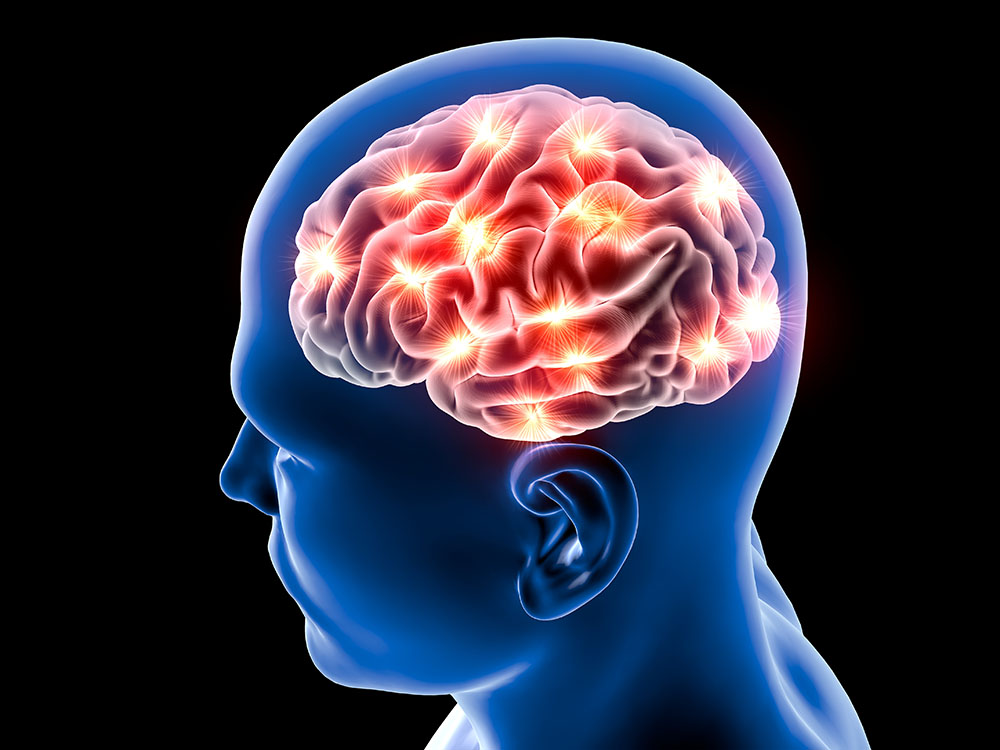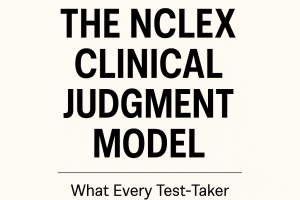Comprehensive Care for a Client with Neurological Health Problems: An NCLEX-Standard Guide

Neurological health problems encompass a wide range of disorders affecting the brain, spinal cord, and nerves. These conditions can significantly impact a patient’s quality of life and functional abilities. This guide adheres to NCLEX standards and covers essential aspects of managing a client with neurological health problems, including assessment, common conditions, treatment options, nursing interventions, and patient education.
Understanding Neurological Health Problems
Neurological disorders can affect various parts of the nervous system, leading to diverse symptoms and complications. Common neurological conditions include stroke, epilepsy, multiple sclerosis (MS), Parkinson’s disease, and Alzheimer’s disease.
Common Symptoms
Symptoms of neurological health problems vary widely depending on the specific condition but may include:
- Headaches
- Seizures
- Muscle weakness
- Coordination problems
- Sensory disturbances (numbness, tingling)
- Cognitive impairments (memory loss, confusion)
- Speech and language difficulties
- Changes in vision or hearing
Common Conditions
1. Stroke (Cerebrovascular Accident)
Symptoms:
- Sudden numbness or weakness, especially on one side of the body
- Confusion, trouble speaking or understanding speech
- Sudden vision problems
- Difficulty walking, dizziness, loss of balance or coordination
- Severe headache with no known cause
Treatment:
- Emergency care (thrombolytics for ischemic stroke)
- Medications (anticoagulants, antiplatelets)
- Rehabilitation (physical, occupational, and speech therapy)
2. Epilepsy
Symptoms:
- Recurrent seizures
- Temporary confusion
- Uncontrollable jerking movements of arms and legs
- Loss of consciousness or awareness
- Psychic symptoms (fear, anxiety)
Treatment:
- Antiepileptic drugs (AEDs)
- Lifestyle modifications (adequate sleep, avoiding seizure triggers)
- Surgical interventions in refractory cases
3. Multiple Sclerosis (MS)
Symptoms:
- Fatigue
- Difficulty walking
- Numbness or tingling
- Muscle weakness or spasms
- Vision problems
- Bladder and bowel dysfunction
- Cognitive changes
Treatment:
- Disease-modifying therapies (DMTs)
- Symptom management (medications for spasticity, pain, bladder issues)
- Rehabilitation (physical and occupational therapy)
4. Parkinson’s Disease
Symptoms:
- Tremors
- Bradykinesia (slowness of movement)
- Muscle rigidity
- Postural instability
- Speech and writing changes
Treatment:
- Medications (levodopa, dopamine agonists)
- Deep brain stimulation (DBS)
- Physical therapy and exercise
5. Alzheimer’s Disease
Symptoms:
- Memory loss
- Confusion and disorientation
- Difficulty with complex tasks
- Changes in personality and behavior
- Difficulty with speech and understanding
Treatment:
- Medications (cholinesterase inhibitors, memantine)
- Cognitive and behavioral therapies
- Supportive care for daily activities
Nursing Care and Considerations
1. Comprehensive Assessment
- History Taking: Obtain a detailed medical history, including previous neurological issues, medication use, lifestyle factors, and family history.
- Physical Examination: Perform a thorough neurological exam, including assessment of mental status, cranial nerves, motor function, sensory function, reflexes, and coordination.
- Diagnostic Tests: Ensure completion of necessary tests such as MRI, CT scan, EEG, lumbar puncture, and blood tests.
2. Symptom Management
- Pain Control: Regularly assess pain levels and administer prescribed pain relief medications.
- Seizure Management: Monitor for seizure activity, maintain safety during seizures, and administer prescribed antiepileptic medications.
- Mobility Support: Assist with mobility and provide devices as needed (e.g., walkers, wheelchairs).
3. Patient Education
- Disease Understanding: Educate on the nature of the neurological condition, treatment options, and expected outcomes.
- Medication Adherence: Emphasize the importance of taking prescribed medications as directed and understanding potential side effects.
- Lifestyle Modifications: Encourage a healthy lifestyle, including a balanced diet, regular exercise, and stress management.
4. Psychological Support
- Emotional Support: Provide a supportive environment and address any anxieties or fears the client may have.
- Counseling: Refer to counseling services if needed to help cope with chronic illness.
- Support Groups: Encourage participation in support groups for emotional and psychological support.
5. Monitoring and Follow-Up
- Regular Monitoring: Monitor vital signs, neurological status, lab results, and symptoms regularly to detect any changes in condition.
- Follow-Up Appointments: Ensure the client attends follow-up appointments for ongoing assessment and treatment adjustments.
Case Study: Managing a Client with Multiple Sclerosis
Background
Ms. Johnson, a 35-year-old woman, presents with fatigue, muscle weakness, and occasional vision problems. She has been diagnosed with relapsing-remitting multiple sclerosis (RRMS).
Assessment
- History: Detailed history of symptoms, exacerbations, medication use, and lifestyle factors.
- Physical Exam: Neurological examination reveals decreased muscle strength and coordination issues.
- Diagnostic Tests: MRI shows demyelinating lesions in the brain and spinal cord.
Treatment Plan
- Medications:
- Disease-modifying therapies (interferon beta, glatiramer acetate)
- Medications for symptom management (baclofen for spasticity, modafinil for fatigue)
- Lifestyle Modifications:
- Dietary changes to maintain nutrition
- Regular exercise tailored to ability
- Stress management techniques
- Rehabilitation:
- Physical therapy to improve mobility and strength
- Occupational therapy to assist with daily activities
Nursing Interventions
- Education: Provided detailed instructions on medication regimen, lifestyle modifications, and management of symptoms.
- Symptom Management: Administered prescribed medications and monitored for side effects.
- Support: Provided emotional support and referred to counseling services as needed.
Nursing Considerations
1. Pain Management
- Assessment: Regularly assess pain using standardized pain scales and adjust pain management strategies as needed.
- Interventions: Administer prescribed pain medications and provide non-pharmacological pain relief methods.
2. Infection Prevention
- Immunosuppressive Therapy: Monitor for signs of infection and educate the client on preventive measures.
- Hand Hygiene: Emphasize the importance of proper hand hygiene.
3. Nutrition and Hydration
- Dietary Support: Provide dietary recommendations to support overall health and manage symptoms.
- Hydration: Encourage adequate fluid intake to prevent dehydration.






